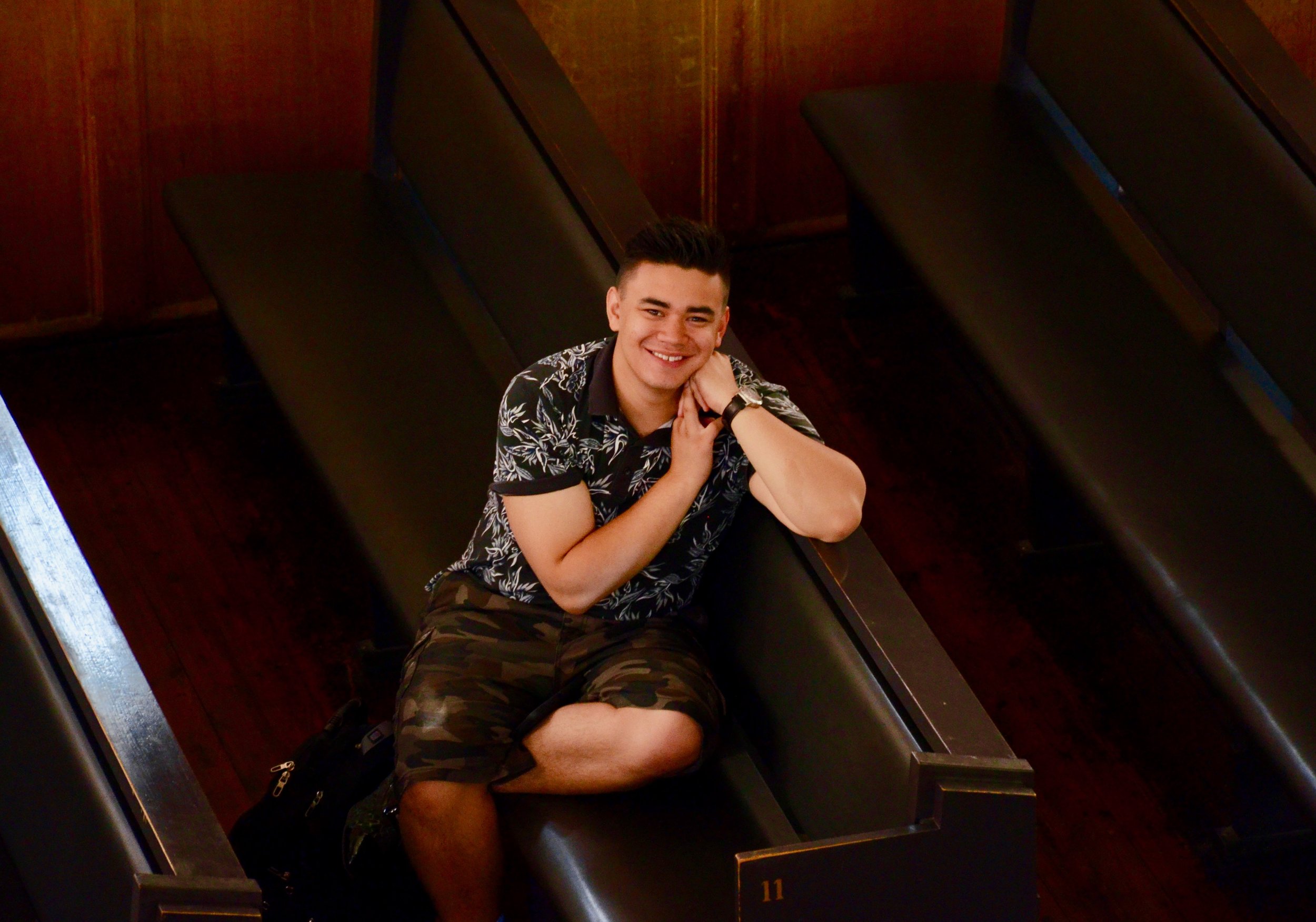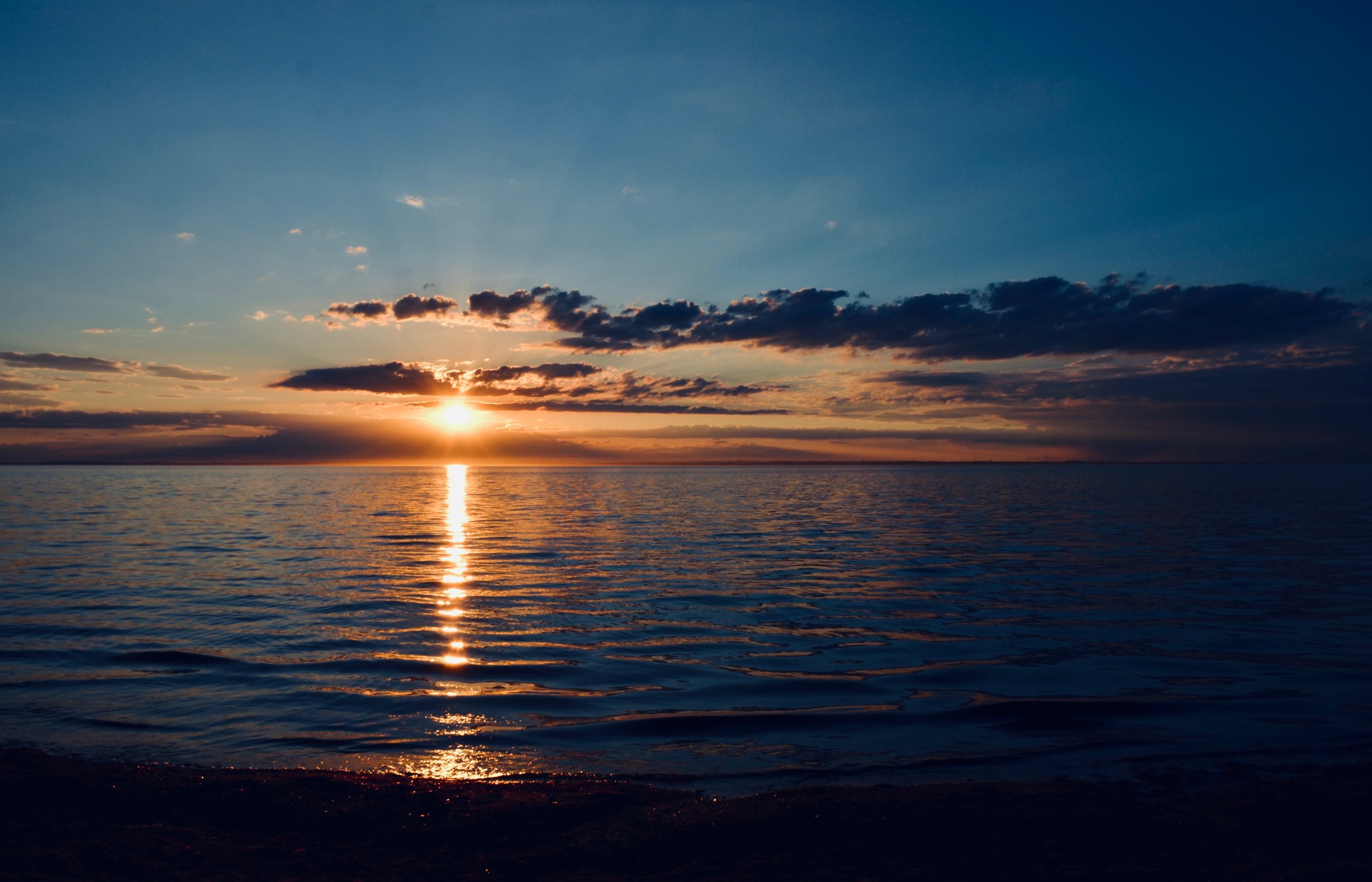Reflections
For our final blog post of the trip, each participant has written a short paragraph about the experience as a whole. Please enjoy these final reflections, and thank you for following our journey!
Nicholas Capozzoli
Nick Capozzoli in Schwerin
Organists play, study, and internalize the music of Johann Sebastian Bach from the moment they first learn this instrument. But we always wonder: how does it sound on instruments from his time? What can that teach us about his music and how we play it? Our trip to his homeland (hopefully my first of many) has certainly put the master’s music in perspective. Not only did we play instruments he touched, but we explored his natural and cultural surroundings…maybe he was a spargel (asparagus) lover too! Seeing his childhood home, churches for which he worked, and rare archives are all unforgettable memories. But German music does not end with Bach! I was particularly excited to play music of Franz Liszt and Max Reger on instruments for which the composers wrote. It was an incredible and humbling experience. To Christian Lane and donors who supported this trip, you’ve made this dream a reality for students who otherwise wouldn’t have this opportunity. Thank you!
At the Bachhaus Museum, Eisenach.
Adrian Cho
Adrian Cho in Stade
Seeing and playing on organs played by musical giants such as Bach, Buxtehude, and Liszt were magnificent experiences, something that I very much looked forward to. For me, though, the people really made this trip special. I feel privileged and honored to have spent two weeks with such talented, rising musicians. I truly feel that I learned much from them and grew as an organist. I do hope we'll all stay in touch!
It is hard work pulling stops on the Trost organ in Waltershausen.
Evan Currie
Evan Currie in Lübeck
As I sit and recover from jet lag here in South Carolina, I reflect on the extraordinary opportunity I had just a few days ago. This year’s tour of Germany with friends from the McGill and Boston organ studios was truly a spectacular experience. Our group encountered some of the grandest and ornate instruments of the past, as well as some ancient gems and treasures in countryside villages. The wealth of knowledge that professors such as Arvid Gast, Martin Sturm, and Christian Lane brought, as well as the knowledge we each contributed, were overwhelming and invaluable. Each instrument we encountered forced us to critically evaluate our technique, coordination, and music-making. The instruments we encountered, the memories shared, and the music we made allowed me to grow as an artist and human. I’m thankful to Christian Lane for all of his efforts in organizing this trip and to all those who supported my colleagues and me as we continue to pursue a most rewarding career.
Pumping the organ in Lübeck Dom.
Meg Cutting
Meg Cutting in Bad Lausick.
I am deeply indebted to Christian Lane and to the Boston Organ Studio for extending the invitation to join them on their annual study tour. It has been such a joy to meet these wonderful people and to spend two weeks them in the heart of Bachland, and to see, hear, play, and experience nearly 30 organs in two weeks. The trip was not only made memorable by the organs, but by my colleagues who played them with such finesse and artistry. Now, having played these organs firsthand, we can understand the instruction for the 16’ Aeoline in Liszt’s BACH as well as hear the organo pleno as Bach would have heard it on his instrument at St. Wenzel in Naumburg. We can better grasp the concept of playing works by Sweelinck and Scheidemann on extraordinary instruments like the 1624 Scherer organ of Tangermünde and the small but powerful 1671 meantone organ in Pomßen village. To any organist, it means the world to hear the repertoire we spend years studying on the very instruments for which it was intended. For me, one of the most distinctive organs we encountered was the 1904 Sauer organ in the Michaeliskirche in Leipzig. I can only imagine how revolutionary and eccentric this instrument must have been in its time, and even now the unfamiliar console and characteristic Rollschweller threw us for a loop. I leave Germany with new friends, invaluable experiences, fond memories, and a hunger to learn more German organ repertoire so that I can return once again!
Rosemarie Tougas, with Martin Sturm, in Leipzig.
Jennifer Hsiao
Jennifer Hsiao in Lübeck
Being on this organ study trip in Germany for the past 12 days has been incredible. In addition to wonderful Boston Organ Studio friends who came on the trip, this year’s group also included amazing students who are studying organ full time, and it has been inspiring to be with them and hear them play—I’ve learned so much from them! We also had some very talented chefs on this trip who made some delicious meals! This study trip was particularly special to me because it was the first one where I was revisiting a few of the organs that I had played on my first European organ study trip three years ago with Chris Lane. Revisiting those same organs was an eye-opening experience for me because this time, I came to them with a better understanding of what made them so special after having studied organ more seriously during the intervening years. It was also inspiring to be literally tracing the footsteps of Bach, playing the instruments that Bach, Brahms, Liszt, Distler, and Reubke played and hearing the sounds that they heard. I’m happy to have been able to spend time making memories with incredibly talented old and new friends and experiencing these amazing instruments and spaces. The insights that I gleaned from my fellow organists and these instruments will shape my future organ playing.
In the tower of Schwerin Dom.
Alex Marin
Alex Marin in Schwerin
In Germany, I got to learn so much from everyone and from the organs. I was truly amazed by the instruments. I also enjoyed the talent we had in the kitchen—I never went hungry and the food was never bad! The places that Chris found for us to stay in were very comfortable, and we all had a great sense of community. This trip was the best two weeks of my life.
Driving more than 2,500 kilometers on the trip, the car proved an ideal opportunity for a nap.
Chris Porter
Chris Porter in Leipzig
What a joy and inspiration to spend two weeks with this incredibly gifted group of young musicians! To be able to hear and play the instruments — or at least in the same spaces — where great organists and composers such as J.S. Bach, Brahms, Buxtehude, Distler, Liszt, Mendelssohn, Weckmann, and others worked is truly a unique experience that will inform my playing for the rest of my life. I was also struck by the determination of the German musical and historical enthusiasts who have worked so hard to rebuild churches and reconstruct organs damaged or destroyed by World War II and by many other ravages of time and change. I feel optimistic for the prospects of maintaining these great musical legacies for many years into the future.
Meg Cutting and Evan Currie at the 2000 Woehl “Bach Organ” in Thomaskirche, Leipzig… well past midnight.
Alexander Ross
Alexander Ross, in Stade.
How can I possibly summarize two amazing weeks into one short paragraph? It’s just not possible. Organists are blessed and cursed in that they cannot take their instrument with them. Since organs can be so unbelievably different from one another, it has often been said that the organ itself is the greatest teacher. Given the rather immovable nature of the beast, we are obligated to make pilgrimages and meet the instruments in person. The past two weeks have been so informative in addition to being fun. Meeting the work of master builders of yore (and a few new ones) has broadened all of our horizons. We saw things we could not have imagined. We heard sounds we had never heard before. We felt key actions unlike anything we would have ever expected — but the music written for these old spirits makes so much more sense now. As a bonus, we made several brilliant friends along the way. That being said: it is time to go home and put our newfound inspiration to work!
Enjoying some ice cream between visits.
Alexander Straus-Fausto
Alexander Straus-Fausto in Lübeck
I am very grateful for the opportunity to have travelled to Germany with Christian Lane and the Boston Organ Studio. My highlights were swimming in the Baltic Sea, driving around the beautiful countryside, and getting to know my own studio members better as well as the Boston Studio organists. My organ highlights were visiting Naumburg’s Hildebrandt organ and spending a day at the Thomaskirche with Claudius May-Woehl, an organ builder whom we met on this trip. Everyday was filled with great surprises from new, exotic foods, to gelato and watermelon in the hot sun, to late night parties on the roof, and spur-of-the-moment canoe trips. I grew as a person and a player—I never could have had all of these experiences on my own, and I really appreciate the time and effort that went into planning this trip-of-a-lifetime.
On the grounds of Schwerin Castle
Rosemarie Tougas
Rosemarie Tougas, in Stade.
On the first day of this trip, I could not imagine how much it would change my vision of the German organ. To go back in history and walk in the footsteps of composers we are studying was definitely a life-changing experience. Music that I could not necessarily grasp became so clear, and music that I already liked became even more defined. The organists we met were helpful beyond words to open the world of German organ music to us. The instruments we touched (rare to find in North America) clarified so many aspects of playing and listening. It was eye-opening to experience Buxtehude’s and Reger’s music on the kind of instruments they would have played. I am thankful, as I met wonderful people, spent time in amazing places, and learned so much. I am looking forward to going back to the practice room with this trip in my mind.
Sunset over the Baltic Sea.



















